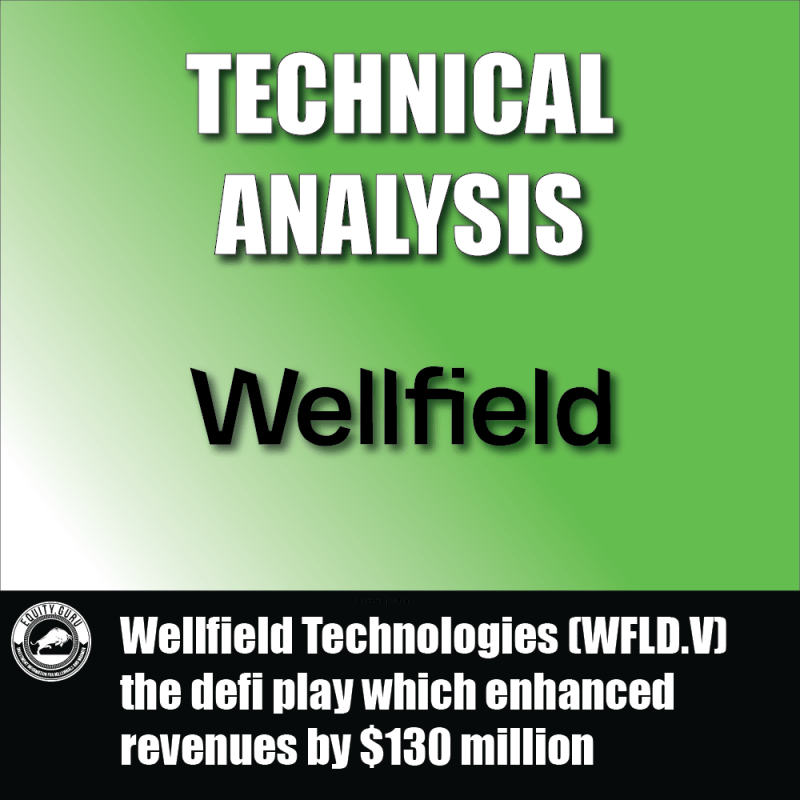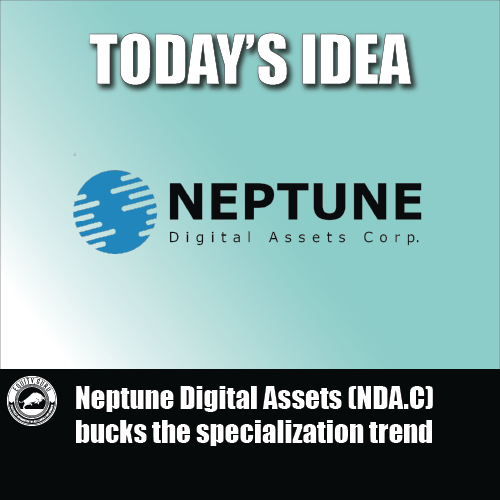As I write this we’re approximately one day and 15 minutes away from 2022.
If you’re like me, then you don’t necessarily wax nostalgic for some idyllic past. For me, the distant past is the black plague. It’s living on the same patch of land as your father, your grandfather and your great grandfather, until some asshole on a horse trots on in to snatch you up without complaint to go fight a war for some other asshole—killing people you have no business killing—because the alternative means your death.
The near past is no different, except we democratized the violence. It means multi-generational abuse, violent crime, more bullshit wars, and governments that aren’t accountable to the people they serve. It means thinking a ninth grade education will get you through because you happen to be born in a place and time that benefits from half the world rebuilding after a catastrophic historical event like the second world war. Then wondering why—some thirty years later—you fall prey to Spanish prisoner scams. It’s the collusion of government and corporate sectors to enrich each other on the backs of the average working person.
Human history is the veneration of psychopaths and the pornography of force, and it’s typical for narratives involving monsters for the victims to be forgotten along the way. In 2022 and going forward, we need to set the precedent that this is not acceptable. Crypto is a wild west where old ladies have the rugs pulled out from under them by unscrupulous assholes, and we need to remember this, but not at the risk of losing everything that’s good about our identity.
But the past is history, as they say, and the future’s all you’ve got to look forward too. That’s why there’s so many class action lawsuits here, and the focus is on upsurge of regulatory activity, because 2022 is going to be all about the governments of the world putting their collective foot down (and probably crushing well meaning people along the way).
Maybe just maybe at the tail end of 2022 we’ll begin to see a cryptocurrency and blockchain sector wherein scammers producing ERC-20 coins in the Ethereum Virtual Machine may have to think twice before absconding with investors funds. (Sup Squid Game?) For right now, though, let’s focus on exchanges—which have gotten away with far too much for far too long.
Time to Take Aim Against Misleading Business Practices in Crypto
Back in 2016 when I was first getting into crypto, one of the key pieces of information that was otherwise omitted when I was being sold on crypto was that everything you do will come with some variety of hidden cost attached. I’d always assumed that was the case and wouldn’t have any problems calling folks up and inquiring where the pitfalls up, but there’s no guarantee they would know.
One of the awesome shifts that’s going to happen in 2022 when crypto-club finally gets an adult in the room is that shitheels that charge you for wallet fees and ‘premium fees’ for shapeshifting may just get their ass handed to them in court.
Case in point: Voyager Digital (VYGR.T), which is the target of a proposed class action lawsuit for misleading customers about hidden fees. Voyager advertises its trades as 100% commission free, except of course, for the secret commissions built into the pricing of each trade that exceed the fee pricing and commission charged by competitors.
Naturally, Voyager says the claims are garbage, but really, this is just the beginning.
I can’t say for certain if Voyager is guilty of misleading their customers and doling out hidden fees as I’ve never used their platform, but I can securely say that most exchanges carry hidden fees. Sometimes you can find them in the fine print—these ones generally have an idea towards going legit at some point—and then sometimes you can’t. Primarily, because they’re likely not there. These exchanges will get theirs in time.
World Biggest Cryptocurrency Exchange gets Insider Trading Probe
Binance is the biggest cryptocurrency exchange in the world, and perhaps surprising none, it’s one of the dirtiest. Everyone I know is on it. I nearly got on it during the Shiba Inu craze when FOMO infected me with its chaotic poisonous tendrils. Thankfully, I decided to sleep on it. Not necessarily because of SHIB—I’m agnostic on its future—but because I nearly dealt with Binance. I need a shower just thinking about it.
How is Binance dirty? Let us count the ways:
- They’re the biggest cryptocurrency exchange in the world and they refuse to fall in line in terms of KYC and AML regulations. I get the argument against it—these regulations are government’s way of getting into your wallet—and that would hold water if the harms bought and sold everyday on the dark web were somehow nonexistent. They’re not. Ergo, Binance is complicit in any number of crimes simply by being a place where criminals can transact without scrutiny.
- Binance has a record of market manipulation.
- And now maybe insider trading.
The CFTC was already on Binance’s case about whether or not the exchange allowed Americans to use the exchange illegally—if they have, I don’t know how. Americans generally have to use BinanceUSA to do business. Now they can add an insider trading investigation, according to a report today from Bloomberg.
Neptune Digital Assets caps off successful year one after post-DASH pivot
Privacy coins represent a curious division in the crypto-world and one that’s caused no end of dissonance. On one hand, coins like Monero are commonly used on the dark web to buy all manner of illicit bullshit, but they’re also really the only way to keep your transactions private and secure away from the prying eyes of all the peeping neighbours, scammers and overreaching governments of the world.
They’re simultaneously a hedge from governments, represent a means to protect your financial freedom from incursion from both Nanny State and brutal dictatorships alike, both of which want to curtail your freedoms as a means of social control but under different circumstances. But they’re also used by horrible people to buy horrible things. The secret here is to go after the exchanges and portals and get more eyes in the dark web. You’re never going to stop privacy coins entirely and over-regulating them is just going to create criminals out of well meaning people.
Still, the nasty parts of the narrative are what’s caused their popularity to decline.
Neptune Digital Assets (NDA.V) once upon a time was a company dedicated to the mining and infrastructure of one of the privacy coins, Dash. It made sense at the time. Dash was a Bitcoin spinout that had taken on private characteristics and jumped decently high in the ranking. Now that privacy coins have drawn regulatory scrutiny, more and more people are moving away from them to avoid the profit loss from regulatory fallout.
NDA joined the cast of thousands escaping stage left from Dash and executed a pivot to mining other coins including BTC, ATOM (Cosmos) and ETH, among others. They released a spate of financial data indicating how they managed to finish for the year, and honestly, for a company that made a pivot away from being a one-coin pony to a diversity of coins—their first year wasn’t half bad.
Here’s a list of highlights form their Aug 31, 2021 to year end:
- Neptune ended the year on Aug. 31, 2021, with $55-million in assets and no debt. As of the date of this news release, the company held approximately $70-million in total assets and no debt;
- Neptune earned a total of $2,259,088 through bitcoin mining and other income-generating activities during the year;
- Cash operating costs for the year totalled $1,056,635 or $88,000 per month;
- Neptune mined $358,701 worth of bitcoin up to Aug. 31, 2021. Subsequent to year-end and up to the date of this release, Neptune earned another 31 bitcoin, bringing the total bitcoin balance to 141;
- 530 bitcoin mining rigs equating to 53 petahashes are expected to come on-line in the first calendar quarter of 2022 adding to existing revenue streams;
- Neptune’s two largest digital asset holdings as of the date of this release are 141 BTC and 150,000 ATOM. The company also holds positions in ETH (ethereum), FTM, Tshare, TIME, LTC and a number of other tokens, as well as an investment in the Protocol Crypto Quant Fund valued at $7.6-million (U.S.) at the end of October and a current cash balance of $23.2-million for strategic acquisitions, bitcoin mining rig purchases and operations.
They’re not yet competitive with even some of the middle-ground players in the bitcoin mining game, but they have a better track and development record than many of those companies did when they started out. Maybe we’ll see a sizable bump from them in the 2022—depending on what happens to the industry in general.
Color Star Technology onboards Spanish soccer star to the metaverse
Let’s take a break from the doom and gloom and talk about soccer and the metaverse.
At this stage of its development, the draw for the metaverse is loading it up with recognizable personalities with the promise of interaction. YOU TOO CAN BE CLOSE TO… Iker Casillas Fernandez, who is apparently a Spanish soccer star, if you’re willing to sign up with Color Star Technology’s (CSCW.Q) new metaverse interactive platform, Color Star app.
A little bit of research later and Casillas is apparently regarded as the greatest goalkeeper in Real Madrid’s history, and one of the best in the world. (Granted you go to the next page and he’s a no-good bum who let the team down in x game at y time in the team’s history, but that’s the nature of sport) The numbers, though, don’t equivocate. He played for Real Madrid for 25 seasons, won 3 UEFA champions League, 5 LaLiga, 2 copa del Rey, 4 Spanish Super Cup, and 1 FIFA Club WorldCup for 725 games in 16 seasons and 19 trophies.
As a Canadian and someone who grew up with hockey on every Saturday night, I talk a lot of shit about soccer. But I played it in school (and even played goal—which ain’t easy) and have to give respect where respect is due.
This is the part where we shift from disgust to distaste, because it’s unlikely that NFT are going to go away in 2022. I suspect they’ll taper in popularity when someone invents some kind of new crypto-widget, but who knows?
Until then,
Let’s talk about NFTs like they’ll be around late in 2022
Like most companies presently offering non-fungible tokens and other related tech assets, Integrated Media Technology (IMTE.Q) seems to be one of those companies that hasn’t completely missed the point.
They signed a deal with a private company so they could make an NFT platform, except this platform could totally have multiple different, and far more lucrative, uses than simply reproducing the goofy LeBron hops NFT over and over again for $45.
Check this out:
In English—it produces a portal by which creators can take their verified transactions from online to offline, while providing encryption and blockchain notarized digital certificates of physical assets.
Someone there does seem to grasp the potential for this tech.
“We are assembling a team of skilled and experienced software engineers who has experienced in multiple Blockchain projects, including the development of the first batch of Blockchain cultural platforms, crypto quantitative trading system, financial Blockchain platform for supply chain, etc. Ouction is expected to adopt decentralized technologies in the fields of games, fintech, film & TV, culture, and e-commerce, and to develop cross-industrial synergy, so to develop economic value from the new NFT marketplace they create,” said Eric Zhang, the developer.
Decentralized Finance
There’s a question among the cognoscenti about whether or not decentralized finance is the future. If you’ve been paying attention to crypto, it’s an old tired narrative: Is bitcoin the future of money? No. Not likely. Is Ethereum the future of business? Again. Probably not. How about NFT? Are they the future of… art? Cue laughter gif.
The same is true for DeFi. The kind of people who get into DeFi are the kind of people that will ensure that DeFi will never been the future of finance. They want widespread adoption but no government intervention—because people are good and governments (which most seem to forget is a collective of people) are generally either bad or stupid. Bad as in the Chinese government and other nasty authoritarian individuality smashing regimes, or stupid as in the United States (or Canadian) government, with their money printing machines in perpetual motion.
Except one generally brings the other, ostensibly because there is no difference between the two.
That’s probably why companies like Wellfield Technologies (WFLD.V) could represent a significant opportunity for DeFi, and it’s not because they’re a client of ours.
“During our latest rounds of user research and testing we’ve seen a marked shift in the Gen Z demographic. As recently as this past spring, most viewed blockchain as a high risk and speculative ecosystem. Now, many see blockchain and DeFi as a legitimate global financial system that is beginning to offer the products and services their parents receive at the local branch and online, but with attractive and sustainable economic incentives, and the user experience they’ve come to expect as mobile native consumers,” said Chanan Steinhart, founder of MoneyClip and chief strategy and business development officer for Wellfield.
He continues with a quote later that highlights what’s probably going to be one of the key conflicts in 2022.
“We are positioning ourselves to capture this consumer shift in banking and finance. Our vision for MoneyClip is to build a full-service financial application that is the best of all worlds – built for Canadians, adherent with local regulation, and powered by global DeFi markets to give our users complete control and flexibility over their money.”
The reason most folks get into DeFi is to escape regulation, or to provide a hedge against the depredations of governments who many believe have grown lax in their economic stewardship. That won’t stop Wellfield from doing well because wedged in between the two opposing polls—regulation averse privacy minded individuals and papa government riding in on a horse to clean up the wild west of crypto—are people who don’t care.
They’ll look at DeFi, see its value and want in, and who gives a shit for the ideological war going on around them? Not them. They’ll get theirs and move on—and I say Godspeed and be careful. Those folks should gravitate towards MoneyClip and Wellfield like children to candy.
—Joseph Morton
Full disclosure: Wellfield Technologies is an equity guru marketing client.








Decentralization is something that will save the crypto world, I guess. And privacy coins are something that is moving to top right now. I know that as I follow Utopia p2p project and it has own no KYC decentralized exchange https://crp.is/ After Monero was banned, they’ve listed it on their exchange and provided fully anonymous access to it. No matter what will happen.